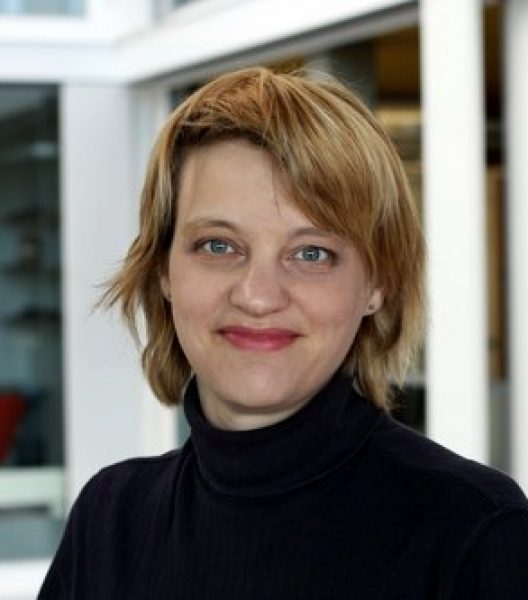The 4th Symposium on Computing and Mental Health which took place at CHI 2019, Glasgow on 5th May 2019 was a great success. We took notes and photos during the symposium and have placed them here in advance of a formal write-up later.
Call For Participation
The World Health Organization predicts that by the year 2030, mental illnesses will be the leading disease burden globally. If mental health technologies are to be successful at supporting those who experience mental distress to succeed, human-centered design of technology and services is essential.
This 4th Symposium on Computing and Mental Health will provide an opportunity for researchers to meet under the auspices of CHI 2019. It follows three successful symposia at CHI 2016, 2017 and 2018.
In convening at CHI, we are especially interested in work that seeks to understand users and contexts of use. Our particular focus is on people who are difficult to reach, and who may be socially or digitally excluded, because these people may be less likely to seek and receive help..
There are three submission types:
- Long papers should be submitted straight to JMIR Mental Health. Authors of JMIR papers must register at the workshop for inclusion in the special issue. Authors of papers that have been submitted and accepted by April 13 will be invited to give a brief presentation.
- Posters describe work-in-progress and must include both a user study / empirical data and clearly relate to technology. Submit to Easychair .
- Social papers are maximum one page in length and act as a CV for networking. They can also include existing publications. Submit to Easychair .
Important Dates:
- Submission deadline for posters and social papers: extended to 4th March 2019
- Acceptance notifications: extended to 11th March 2019
- Submission window for long papers: January 2019 – 10 June 2019
- Symposium: 5th May 2019
The full Call-For-Papers is available here. Please cite as “J. Torous, M. Wolters, G. Wadley, R.A. Calvo (2019). 4th Symposium on Computing and Mental Health: Understanding, Engaging, and Delighting Users. in Proceedings of the 2019 CHI Conference Extended Abstracts on Human Factors in Computing Systems.”
We will use the Twitter hashtag #CMH2019 .
The current special issue of JMIR (stemming from the 2018 workshop) is available at http://www.jmir.org/themes/579 .
If you would like to know more about previous symposia, some of the activities and outcomes of the 1st and 2nd Symposium are described in: Calvo RA, Dinakar K, Picard R, Christensen H, Torous J. “Toward Impactful Collaborations on Computing and Mental Health”. J Med Internet Res 2018; 20(2): e49 [DOI]
Schedule
09:00–09:30 Welcome and Introductions
09:30–10:15 Invited Speaker 1
10:15–11:15 Coffee and Posters
11:15–12:00 Invited Speaker 2
12:00–13:30 Group Lunch
13:30–14:30 Presentations of Accepted JMIR Papers
14:30–15:30 Panel: Designing for Ethics
15:30–16:00 Coffee and Posters
16:00–17:00 eMentalHealth in Practice: Guided Discussion
Keynote Speakers
Professor Dame Til Wykes is a Professor of Clinical Psychology and Rehabilitation at King’s  College London and NIHR Senior Investigator. She is also editor of the Journal of Mental Health and Vice Dean of Psychology and System Sciences at the Institute of Psychiatry, Psychology & Neuroscience. Her work focuses on the development on novel treatments for people with a diagnosis of schizophrenia, her studies on cognitive remediation therapy have redefined the concept of recovery in schizophrenia. Professor Dame Til Wykes currently leads several projects investigating computerized cognitive remediation as well as smartphone and sensor based monitoring in serious mental illnesses. A strong advocate for patients, she has been an early advocate of patient-centric and ethical technology use in mental health.
College London and NIHR Senior Investigator. She is also editor of the Journal of Mental Health and Vice Dean of Psychology and System Sciences at the Institute of Psychiatry, Psychology & Neuroscience. Her work focuses on the development on novel treatments for people with a diagnosis of schizophrenia, her studies on cognitive remediation therapy have redefined the concept of recovery in schizophrenia. Professor Dame Til Wykes currently leads several projects investigating computerized cognitive remediation as well as smartphone and sensor based monitoring in serious mental illnesses. A strong advocate for patients, she has been an early advocate of patient-centric and ethical technology use in mental health.
Dr. Victoria Betton is founder and director of mHabitat – an NHS hosted organisation which  supports people-centred digital innovation in health and care, and Co>Space North – a digital health and tech for good co-working and collaboration space. She is a qualified social worker and coach with over twenty year’s experience in local government, third sector and the NHS. She has Masters degrees in Women’s Studies, Social Work and a Diploma in Public Sector Relations. Her doctoral research was on the theme of mental health and online social networks. She is a member of the HIMSS UK Advisory Board and a trustee for Solace, a refugee and asylum seeker charity. She is co-author of Teen Mental Health in an Online World and you can find her blog at www.codesigndigitalhealth.co.uk You can find her on Twitter @VictoriaBetton and her Pets as Therapy dog Bibi on Instagram at bibithepatdog.
supports people-centred digital innovation in health and care, and Co>Space North – a digital health and tech for good co-working and collaboration space. She is a qualified social worker and coach with over twenty year’s experience in local government, third sector and the NHS. She has Masters degrees in Women’s Studies, Social Work and a Diploma in Public Sector Relations. Her doctoral research was on the theme of mental health and online social networks. She is a member of the HIMSS UK Advisory Board and a trustee for Solace, a refugee and asylum seeker charity. She is co-author of Teen Mental Health in an Online World and you can find her blog at www.codesigndigitalhealth.co.uk You can find her on Twitter @VictoriaBetton and her Pets as Therapy dog Bibi on Instagram at bibithepatdog.
Organizers
 John Torous, MD is co-director of the digital psychiatry program at Beth Israel Deaconess Medical Center, a Harvard Medical School affiliated teaching hospital, where he also serves as a staff psychiatrist and clinical informatics fellow. He has a background in electrical engineering and computer sciences and received an undergraduate degree in the field from UC Berkeley before attending medical school at UC San Diego. He completed his psychiatry residency at Harvard. Dr. Torous is active in investigating the potential of mobile mental health technologies for psychiatry, developing smartphone tools for clinical research, leading clinical studies of smartphone apps for diverse mental illnesses, and publishing on the research, ethical, and patient perspectives of digital psychiatry. He serves as editor-in-chief for JMIR Mental Health and currently leads the American Psychiatric Association’s work group on the evaluation of smartphone apps.
John Torous, MD is co-director of the digital psychiatry program at Beth Israel Deaconess Medical Center, a Harvard Medical School affiliated teaching hospital, where he also serves as a staff psychiatrist and clinical informatics fellow. He has a background in electrical engineering and computer sciences and received an undergraduate degree in the field from UC Berkeley before attending medical school at UC San Diego. He completed his psychiatry residency at Harvard. Dr. Torous is active in investigating the potential of mobile mental health technologies for psychiatry, developing smartphone tools for clinical research, leading clinical studies of smartphone apps for diverse mental illnesses, and publishing on the research, ethical, and patient perspectives of digital psychiatry. He serves as editor-in-chief for JMIR Mental Health and currently leads the American Psychiatric Association’s work group on the evaluation of smartphone apps.
Maria K. Wolters is Reader in Design Informatics at the University of Edinburgh, and a Faculty  Fellow of the Alan Turing Institute for Data Science and Artificial Intelligence, London, UK. She received her PhD from the University of Bonn, Germany, in Communication Research and Phonetics and worked as a speech synthesis development engineer and clinical phonetician at Rhetorical Systems (now Nuance), the University of Newcastle, and Queen Margaret University before joining the University of Edinburgh. She is the author of over 80 peer-reviewed papers on accessibility, telehealth, mental health, computational linguistics, and speech science and has a long track record of interdisciplinary collaboration with psychologists, psychiatrists, and neurologists.
Fellow of the Alan Turing Institute for Data Science and Artificial Intelligence, London, UK. She received her PhD from the University of Bonn, Germany, in Communication Research and Phonetics and worked as a speech synthesis development engineer and clinical phonetician at Rhetorical Systems (now Nuance), the University of Newcastle, and Queen Margaret University before joining the University of Edinburgh. She is the author of over 80 peer-reviewed papers on accessibility, telehealth, mental health, computational linguistics, and speech science and has a long track record of interdisciplinary collaboration with psychologists, psychiatrists, and neurologists.
 Rafael A. Calvo is Professor at the University of Sydney, and ARC Future Fellow. He worked at the Language Technology Institute in Carnegie Mellon University, Universidad Nacional de Rosario (Argentina) and on sabbaticals at the University of Cambridge and the University of Memphis. Rafael also has worked as an Internet consultant for projects in the US, Australia, Brasil, and Argentina. He is the author of two books and over 100 publications in the fields of learning technologies, affective computing and computational intelligence. Rafael is Associate Editor of the Journal of Medical Internet Research Human Factors (JMIR-HF), co-Editor of the Oxford Handbook of Affective Computing, and co-author of Positive Computing (MIT Press) with Dorian Peters.
Rafael A. Calvo is Professor at the University of Sydney, and ARC Future Fellow. He worked at the Language Technology Institute in Carnegie Mellon University, Universidad Nacional de Rosario (Argentina) and on sabbaticals at the University of Cambridge and the University of Memphis. Rafael also has worked as an Internet consultant for projects in the US, Australia, Brasil, and Argentina. He is the author of two books and over 100 publications in the fields of learning technologies, affective computing and computational intelligence. Rafael is Associate Editor of the Journal of Medical Internet Research Human Factors (JMIR-HF), co-Editor of the Oxford Handbook of Affective Computing, and co-author of Positive Computing (MIT Press) with Dorian Peters.
 Greg Wadley is a Senior Lecturer in the School of Computing and Information Systems at the University of Melbourne, Australia. His research involves the design and evaluation of technologies for health and wellbeing, including collaborative projects in the areas of mental health, social connectedness, hospitalized children, smoking cessation, chronic pain and addiction. He holds degrees in computer science (Queensland), cognitive science (Melbourne), and human-computer interaction (Melbourne). Since 2009 a major focus has been collaboration with an Australian youth mental health clinic to design and trial online social therapies for young people and their carers.
Greg Wadley is a Senior Lecturer in the School of Computing and Information Systems at the University of Melbourne, Australia. His research involves the design and evaluation of technologies for health and wellbeing, including collaborative projects in the areas of mental health, social connectedness, hospitalized children, smoking cessation, chronic pain and addiction. He holds degrees in computer science (Queensland), cognitive science (Melbourne), and human-computer interaction (Melbourne). Since 2009 a major focus has been collaboration with an Australian youth mental health clinic to design and trial online social therapies for young people and their carers.
